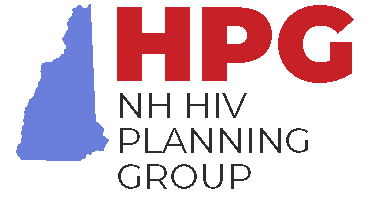HIV Planning in New Hampshire: From Then to Now
The Ryan White Comprehensive AIDS Resources Emergency (CARE) Act was enacted in 1990 and required the delivery of health care services and support to people living with HIV/AIDS in the US. The Health Resources and Services Administration (HRSA) oversee this Act. The CARE Act stressed the role of local planning and decision making, with broad community involvement, to determine how to best meet HIV/AIDS care needs.
the history of hiv care planning
HIV Prevention Planning began as a national initiative started in 1994 by the Center of Disease Control and Prevention (CDC) to assure that the people most impacted by the HIV/AIDS epidemic had the opportunity to join with state and territorial health departments, forming a partnership to facilitate participatory planning.
timeline
| 1994 – CDC Community Planning Guidance begins; Implementation Committee formed, stakeholders list generated, CPG members recruited, Community Co-chair seated, first CPG meeting held, statewide Needs Assessment contracted, first Comprehensive Plan Created |
| 1995 – Community Co-Chair attends leadership training, new Health Department Co-Chair appointed, NH Receives Supplemental HIV Prevention funding |
| 1996 – Manchester Citywide Community Planning group established and contracted for a citywide needs assessment |
| 1998 – Lakes Region Community Planning Group established, New CDC Guidance released, Manchester Citywide Planning Group completed |
| 1999 – Lakes Region CPG dissolves |
| 2002 – Beginning of the process of merging Care and Prevention planning groups |
| 2003 – New CDC Guidance Released |
| 2004 – HIV Prevention Community Planning and CARE Planning groups merge to become NH HIV Community Planning Group |
| 2012– New CDC Guidance released, Ad Hoc Committee formed to evolve NH CPG into new HPG based on guidance and 2010 National HIV/AIDS Strategy |
| 2013 – First meeting of the NH HPG convened, Steering Committee members elected and appointed |

